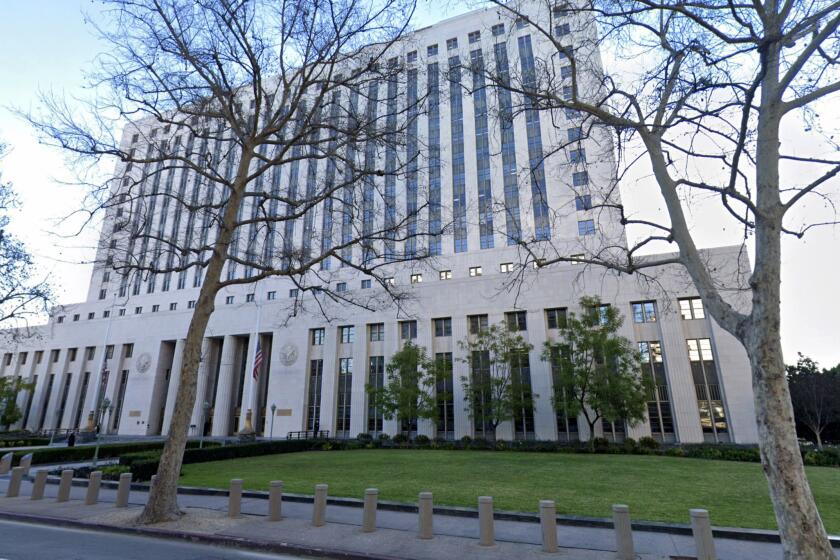Honor System
In January 1995, a chastened Lockheed Corp. agreed to pay a record $24.8 million in penalties for illegally bribing an Egyptian official to gain her help in winning a three-plane contract. The fine was levied under the Foreign Corrupt Practices Act, a law that had arisen from a Lockheed bribery scandal two decades earlier.
Acknowledging guilt in the Egyptian case, the company said its own internal investigation had revealed “regrettable mistakes in judgment.”
It might seem that proper ethical behavior should be obvious. Yet examples of shabby practices abound in corporate America. Consider the recent headline-grabbing controversies that have embroiled companies as diverse as Sears, Roebuck & Co.; Nynex; Mitsubishi Motor Manufacturing of America; Archer-Daniels-Midland Co.; General Dynamics Corp.; and, most recently, Columbia/HCA Healthcare Corp.
From fraud to price-fixing to customer overcharges to sexual harassment, corporate scandals tend to demoralize employees, rile investors and drive away potential customers and suppliers.
“Trust is really at a low ebb in most of our institutions,” said Shirley V. Peterson, a consultant on corporate ethics based in Playa del Rey.
Evidence of ethics transgressions continues to mount even as companies make high-profile efforts to mend their ways. A growing number of corporations have ethics codes, and U.S. companies are spending hundreds of millions of dollars on ethics training.
Yet a study earlier this year by the American Society of Chartered Life Underwriters & Chartered Financial Consultants and the Ethics Officer Assn., spotlighted by Workforce magazine in a special issue on ethics, reveals that many of those efforts are hollow. The survey found that 56% of workers feel some pressure to act illegally or unethically. An astonishing 48% admitted to having engaged in one or more unethical and/or illegal actions in the previous year. Among the common violations: cutting corners on quality, abusing sick days, deceiving customers, lying to colleagues, covering up incidents and taking credit for a co-worker’s ideas.
What constitutes appropriate ethical behavior is a source of seemingly endless confusion in the workplace, especially as companies expand their reach into countries where views of what is acceptable differ markedly. Moreover, today’s business climate presents challenges as companies attempt to do more with fewer people.
Consciously or not, managers under pressure to boost sales and improve profitability with fewer resources often send the message that it’s OK to lie, cheat or steal. Pressured to perform, even well-intentioned people can weaken and stoop to doing bad things.
But corporations are under rising pressure--from the government, shareholder groups, customers and others--to implement ethics programs that have substance and integrity. This has been especially true since 1991, when the U.S. Sentencing Commission adopted new federal sentencing guidelines. They dictate that companies convicted of white-collar crimes can receive harsh fines if they can’t prove that they’ve made at least some effort to avoid corporate misconduct such as insider trading and fraud.
And a bevy of ethics consultants has materialized to aid corporations.
“Increasingly today, corporations are instituting ethics programs because there is a whole bundle of positive benefits, not the least of which is that corporations believe it is the right thing to do,” said Michael G. Daigneault, president of the Ethics Resource Center in Washington, a nonprofit organization that counsels companies on how to formulate ethics programs.
Here are suggestions for companies seeking to learn about and adopt the best practices in the ethics field to safeguard their reputation with clients and employees:
* Etch a believable public commitment in stone, signed by the chief executive. “Employees are very good at seeing through statements that don’t have substance,” said Kirk Hanson, a professor of business ethics at Stanford’s Graduate School of Business. “They need some document or values statement that describes the ethical values a company holds.”
* Be proactive. Many companies wait until a scandal thrusts them into the courtroom before they scramble to implement an ethics initiative. This gives the appearance that they are belatedly currying favor with the government to avoid harsh penalties under the sentencing guidelines, and bolsters the cynicism that many in America feel about big business. Companies should start the process immediately by asking a few questions: What are the organization’s principles and ethical expectations? What does the company stand for? The answers can be as simple as honesty, integrity, trust, respect, responsibility and citizenship.
* Hire an ethics officer and enlist an ethics committee to integrate the new values into the company’s day-to-day processes. Get vice presidents, managers, division managers and line managers on board so that employees have role models. A company’s leaders set the tone for the corporate culture. If they start looking the other way when workers cheat to achieve goals, abuses will spread like kudzu.
* Establish a strategy to communicate the ethics guidelines to the staff. Consider the case of Lockheed: Two months after the company was smacked with those massive fines in 1995, the case helped spark an unusual focus on ethics when Lockheed merged with aerospace rival Martin Marietta Corp.
Company CEOs Norman Augustine (now chairman of the merged Lockheed Martin Corp.) and Daniel M. Tellep decided that “ethics would be the glue to bind these companies,” said Carol R. Marshall, vice president of ethics and business conduct for Lockheed Martin, based in Bethesda, Md.
With the blessing of top executives, Marshall--who remained with a small staff in Westlake Village--and colleagues devised a wide-ranging corporate program that requires an hour of training per year for each of the company’s 190,000 employees, all of whom receive instructions from their immediate supervisors. Helping with the effort is the Ethics Challenge, a custom board game devised with cartoonist Scott Adams and featuring Dilbert, that poster boy of the nation’s cubicle workers.
Teams of workers deal with various scenarios. Case file No. 26 sets up this situation: A company-sponsored training course is being held in Orlando, Fla., and you have been selected to attend. You have no interest in the training, but you are ready for a vacation and have never been to Florida.
What would you do? A. Ask your supervisor if she thinks it would be beneficial--if so, pack your bags. B. Under the theory that any training will be of some benefit to you, sign up. C. Forget about the training. D. Convince your supervisor that the course will be beneficial, then go only to the sessions that have an obvious relationship to your current work assignment.
From Dogbert comes this alternative: Wear mouse ears to work and hum, “It’s a Small World After All” all day long.
Marshall said more than 2,000 companies and 500 universities have requested copies of the game, which Lockheed Martin provides at no charge. An unexpected side benefit: It has become a recruiting tool.
* Build trust with employees and constantly monitor the ethics program. Installing a telephone help line so that workers can report violations is a start, but employees must also be reassured that officials will investigate and take action when appropriate. Employees need to know that the company has an open-door policy when it comes to reporting misconduct. Periodic evaluation will help ethics officers and executives assess whether employee commitment is still strong and whether new issues are emerging.







